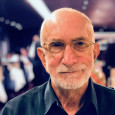Let me start by saying that writing this article was hard. It felt awkward. Indeed, the topic of white gay male privilege in the HIV community is seldom written about from the inside. In fact the term “white gay male” (or GWM) more often appears as an epithet, a term not of endearment or of inclusion but the opposite. Understand I’m not complaining about that. Instead I’m asking how do white gay men like myself, particularly if we are lucky enough to have avoided most but not all of the barriers to living happily and healthily, best navigate HIV work when so many in our community are not white, not gay and definitely not privileged?
It gets complicated fairly fast. Intersectionality, the buzzword of the decade, has opened up discussions of what being marginalized really means. It starts, some activists say, with asking, “What kinds of privileges some LGBTQ community members have and who gets denied them.” Apply that to who gets to go to conferences, who are our spokespeople, who most often head our organizations, who are our decision-makers. I’ll wager, in fact I know, that white gay men are overly represented.
I need to come clean at the outset. I’m a privileged white gay man. There, I have said it. I have a steady although not huge income. My partner and I own a nice house in the county. We take fairly frequent vacations. We never, ever go short of food. I’ve never known homelessness. People don’t shun me because of my colour. So yes, I’m a privileged white gay male. I say this not to boast — I’m not that callous — to situate myself in an epidemic that affects populations that are, more often than not, very far from privileged, very often not white, and frequently not gay.
That’s not to say I’m not marginalized — being gay and HIV-positive and aging takes care of that — but the impact of the stigma associated with these factors is much diminished.
Some will want to point out that well-spoken, well-heeled gents of a certain sexual persuasion have played a significant role from the early days of the epidemic. We all know what GRID stands for (if not, go here), and to downplay the role of gay men in the early response to the epidemic would be downright wrong. The high visibility of gay men in the movement continues, though, to this day, it’s joined by so many others — and that’s a good thing.
It’s a struggle, though, for me to speak authentically for other key populations, other voices. Doesn’t mean we shouldn’t try — in fact some white gay men leading very comfortable lives shine in harm reduction work, for example, where they’re advocates for the most marginalized in our society. Others, like CATIE chair John McCullagh, use their privilege in constructive ways. “I try to acknowledge that my privilege allows me to sit at tables that others are not always invited to” he says. “It isn’t how it should be, but that’s the way it works. I do, however try to open doors for others wherever possible. And as well, although I can’t speak from the lived experiences, I can, and do, try to amplify their voices. And I try to make space for them at those tables whenever I can.”
Some argue that even in high profile venues like AIDS 2018 in Amsterdam (an international AIDS convention), the inclusion of marginalized and most affected voices is merely lip service. New Zealand’s Charlie Tredway said, about a session on criminalization there, “that’s when you look at your neighbours seated around you with your jaw open aghast and realize just how far off course we are to meaningful engagement and equity.”
As one writer said, in an open letter to white gay men: “You must admit, you have no clue what it means to be racially discriminated against.”
Of course the real struggles of being anything other than a GWMM extend far beyond HIV. In fact social media discussions around gender or identity politics abound — and get nasty pretty fast. It’s hard though to disagree with the view of one person of colour who writes, “White gay men are still favored in every aspect of our culture. Being gay doesn’t make them any less privileged. Their gay stories become the standard when it comes to mainstream America. Their gay white heroes like Matt Bomer, Ryan Murphy and Colton Haynes cover magazines, land major television gigs, are broadcast on screens nationwide, setting the barometer of attractiveness and superiority.” He gets it right!
That description of our reality strikes a nerve. I have often blogged about my comfortable life in the country, with a partner and a dog, knowing perhaps that many readers will struggle to identify. Sometimes there is guilt, guilt that an acknowledgement of privilege, which I often include, won’t be enough. It shouldn’t be that way — my life is what it is, and I make no apologies. But I am acutely aware I have privilege (and I have luck) and that there are opportunities to use that privilege and luck in ways that help those who do not. So acknowledging privilege when I write, hopefully with tact, about vacation time or good food or even attending conferences all over the globe isn’t nearly enough, but it’s a start. I should do it more. I’d argue that committed activists like myself should temper depictions of the good life; they irk more people than they impress.
I value the lived experience, not just mine but everyone’s. I should show that more.








4 Comments
4 Comments